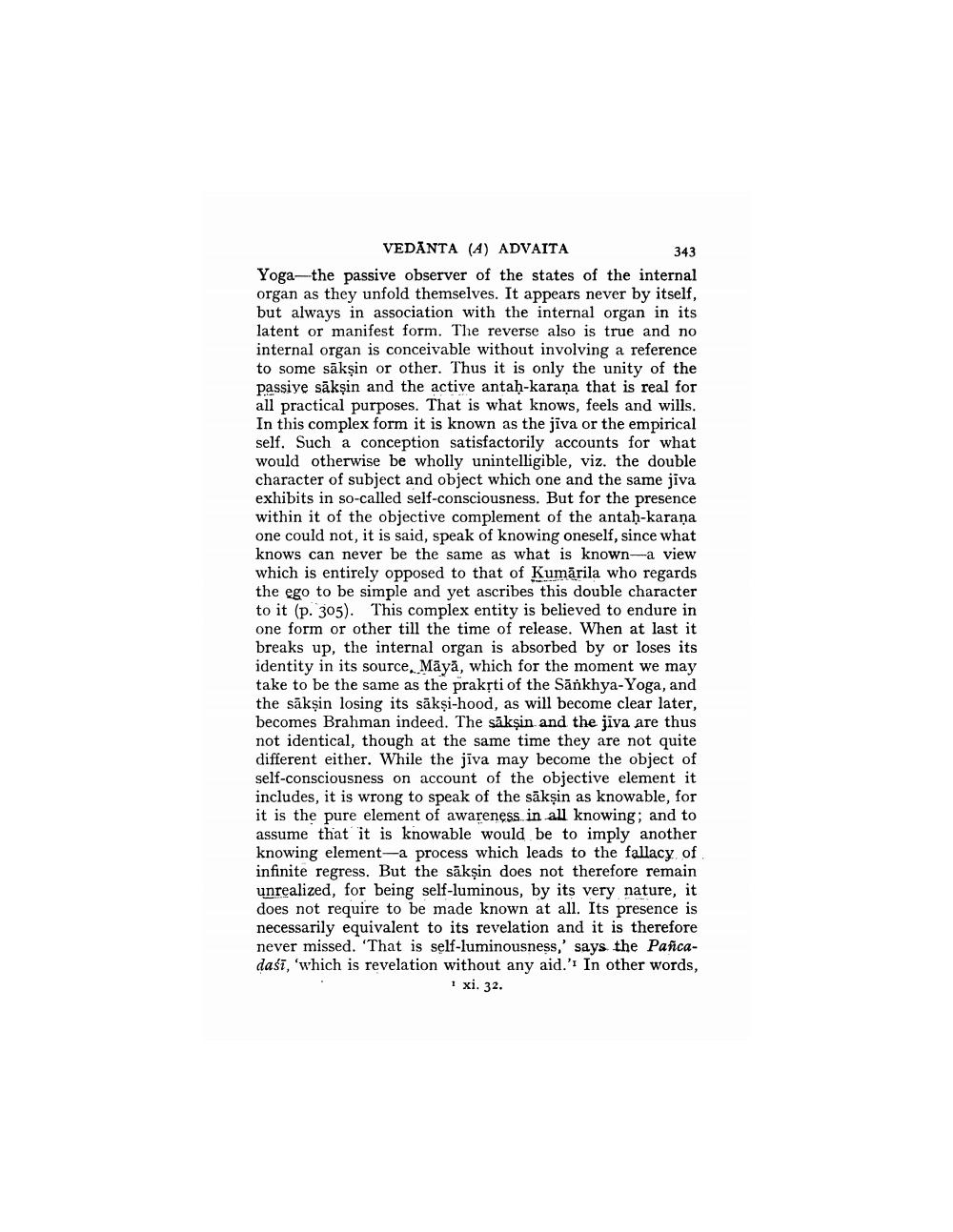________________
VEDANTA (A) ADVAITA
343 Yoga-the passive observer of the states of the internal organ as they unfold themselves. It appears never by itself, but always in association with the internal organ in its latent or manifest form. The reverse also is true and no internal organ is conceivable without involving a reference to some sāksin or other. Thus it is only the unity of the passive sākşin and the active antah-karaņa that is real for all practical purposes. That is what knows, feels and wills. In this complex form it is known as the jiva or the empirical self. Such a conception satisfactorily accounts for what would otherwise be wholly unintelligible, viz. the double character of subject and object which one and the same jiva exhibits in so-called self-consciousness. But for the presence within it of the objective complement of the antah-karana one could not, it is said, speak of knowing oneself, since what knows can never be the same as what is known-a view which is entirely opposed to that of Kumārila who regards the ego to be simple and yet ascribes this double character to it (p. 305). This complex entity is believed to endure in one form or other till the time of release. When at last it breaks up, the internal organ is absorbed by or loses its identity in its source. Māyā, which for the moment we may take to be the same as the praksti of the Sānkhya-Yoga, and the sāksin losing its sākşi-hood, as will become clear later, becomes Brahman indeed. The sākşin and the jiva are thus not identical, though at the same time they are not quite different either. While the jiva may become the object of self-consciousness on account of the objective element it includes, it is wrong to speak of the sākşin as knowable, for it is the pure element of awareness in all knowing; and to assume that it is knowable would be to imply another knowing element-a process which leads to the fallacy of infinite regress. But the sāksin does not therefore remain unrealized, for being self-luminous, by its very nature, it does not require to be made known at all. Its presence is necessarily equivalent to its revelation and it is therefore never missed. 'That is self-luminousness,' says the Pancadasi, 'which is revelation without any aid.': In other words,
1 xi. 32.




